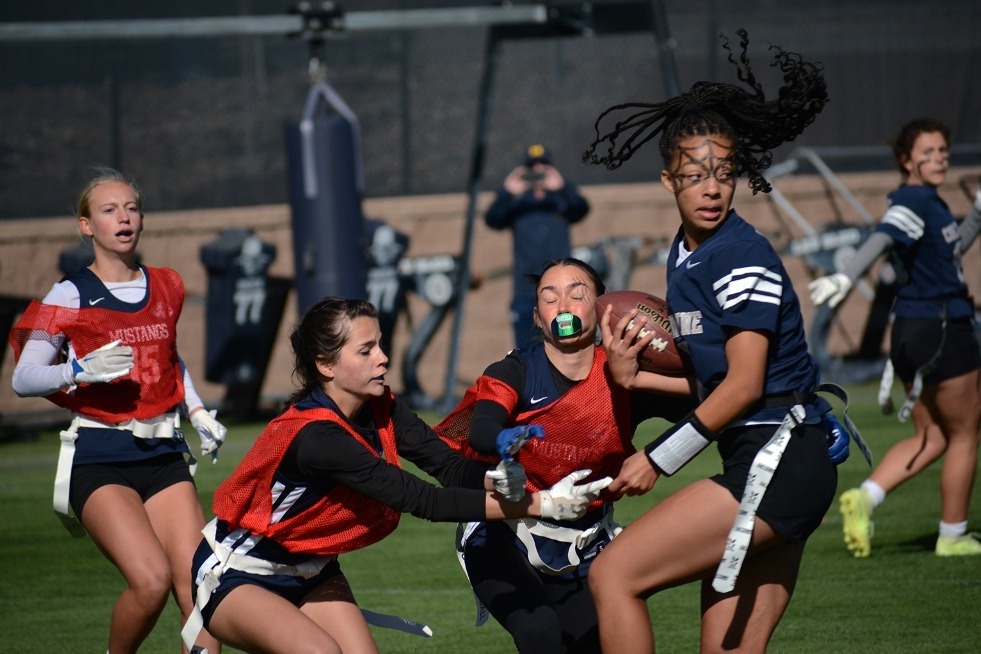
Payday loans are in the cross hairs on this year's ballot.
Proposition 111 would limit interest rates to 36 percent on loans that are often advertised as quick-fixes or one-time deals for emergencies.
But consumer advocates say that's often not the case. Borrowers can end up in a vicious cycle when, unable to pay off a loan, they extend it, which costs them even more. The average interest rate for payday loans in Colorado is 129 percent.
- Need Some Ballot Assistance? Read The Colorado Voter’s Guide To The 2018 Election
Nick Bourke has done extensive research on payday loans and Colorado's laws as the Director of the non-partisan Pew Charitable Trust. Bourke talked to Colorado Matters about the context and the POV from both sides of Proposition 111.
Full Transcript
Ryan Warner: This is Colorado Matters from CPR News. I'm Ryan Warner. Payday loans are in the crosshairs on this year's ballot. Proposition 111 would limit interest rates to 36 percent on loans that are often advertised as quick fixes. Advertisement: The fridge broke. We had to take Buddy to the vet. My car wouldn't start. Again. RW: Makes it sound like they're one-time deals for emergencies, but consumer advocates say that's often not the case. Borrowers can end up in a vicious cycle. Unable to pay off a loan, they extend it which costs them even more. According to the state, the average interest rate for payday loans is 129 percent. Kim Ray of Denver says she took out a $500 loan, she was able to pay it back on time but says that wasn't easy. Kim Ray: It added another bill and to be honest I didn't, just working my regular job I did not have enough money to actually pay it back and keep up on my regular bills. So I ended up actually taking out another job to pay that back. RW: On that $500 loan she says she had to pay $125 in interest over two and a half months. Well, let's talk through Prop 111 with Nick Bourke from the non-partisan Pew Charitable Trusts. He has done extensive research on payday loans and has studied Colorado's existing laws as well. Nick, welcome to the program. Nick Bourke: Thanks, Ryan. RW: Let's start with who most often takes out a payday loan, sort of profile the customer for us. NB: Yeah, that's a great question. People who use payday loans are actually very mainstream in some respects, more than people often would think. So you think about a typical payday loan customer and you're looking at somebody, A, who has a checking account. You have to have a checking account at a bank or a credit union cause that's how the payday lender guarantees they get repaid. It's also somebody who has income. They look at your income and they securitize or collateralize the loan against that income stream. So that's usually somebody who's working. It's also somebody who's making typically about $15 an hour on a full time basis, so that's $30,000 a year or so, on average. So they're kind of mainstream people. Not affluent but not bottom of the barrel in terms of income. They're the working poor, or the people living paycheck to paycheck. And the reason why most people get a loan, seven out of ten times in our research, is they need help paying some kind of regular bill, like mortgage or rent or car payments. A lot of the story here is people who are hourly wage earners who have volatile income and almost half of the households in this country are what researchers would call income volatile, they're income changes by 25 percent or more from month to month. And that's often because they're working at a retail store, or a factory or somewhere else where they're paid hourly and the number of hours that they work changes quite a bit. So it's people in that situation, they're finding gaps of $300-400 here or there in their income and they're looking for help to pay a bill. RW: That's interesting. And perhaps not what people might have assumed about those who take out payday loans. I want to say that in a Denver Post column, John Caldara of the Independence Institute in Denver rails against Prop 111, claiming that it assumes poor people are stupid. And he writes "Payday loan guys aren't saints, but their customers are in fact terrible credit risks. Many rack up massive debts to then declare bankruptcy, leaving the lender with nothing. To make up this loss, lenders charge wildly high rates and fees." So we're going to do some fact checking here, Nick. Are these interest rates justified by the risk of the people taking these loans? NB: Well, let me start by saying we don't have a position on this ballot initiative- RW: That's right. NB: This is an issue for the voters to decide. But the question that the voters have to decide here really is should we have payday loan stores in Colorado or not because the 36 percent rate cap like what the ballot initiative proposes will eliminate the payday loan stores in Colorado. RW: Important point. NB: The column, the comment that you mentioned is one particular point of view. I think one thing that's been lacking in this debate, as far as I've been able to see it, is some nuance about what's really going on in Colorado versus the extreme viewpoints of there shouldn't be regulation on the one hand, or there shouldn't be stores on the other. Colorado has, right now today, by far the market with the lowest rates, the most affordable payments and the strongest consumer protections of any payday loan market in the country. I haven't seen people talking about that so the comment that payday lenders are charging exorbitant rates is justifiable in the sense that they charge a lot higher than a credit card but the law in Colorado has a lot of protections and it's important to keep in the mind the quality of these loans is much different and much better than in other states. To the comment that you raised, yes, payday lenders are making loans to people who, on average, have credit scores in the low 500s. They are much bigger credit risks, and that is why state law currently allows people to charge more than 36 percent on a loan. But right now the market in Colorado is fairly fair and it's working reasonably well. RW: I will say that the legislature has actually taken action on this in 2007 and then again in 2010 so it's not as if this ballot measure is the first volley in Colorado to reform payday lending. Okay, so the folks who take out these loans are indeed risks in some regards. Why don't we do some more fact checking. So we spoke with Corinne Fowler. She's campaign manager for Prop 111 and she says there are other ways for low income folks to get loans. Corinne Fowler: There are a lot of products available to consumers now through their credit unions and their banks and even their credit cards that offer much lower loans than 36 percent. Every individual that takes a loan is a banked individual and they most likely have access to that, some sort of credit that they might not be aware of. We also have to make a real shift around what we think is fair lending and stop saying that it's okay to have this predatory product in our state to begin with and provide new access to credit if people need it. RW: Okay, so she uses that 36 percent figure. Again, Prop 111 would limit these payday loans to 36 percent annual interest and banked individuals, as you've told us, is folks with bank accounts. You have to have that to take out one of these loans. But fact check her for us, can these borrowers find other access to credit? And, I guess she's assuming that's better access to credit. NB: Well, on the one hand, there are a lot of products on the market, credit products that have APRs below 36 percent but, as I said, the typical payday loan customer or applicant, has a credit score that's 517, it's in the low 500s, they're not getting credit cards, they're not getting installment loans. They're not getting those sub 36 percent APR loans and they're not going to get them after this ballot initiative if it passes. Now are these predatory loans? I think that that's an interesting thing to talk about. What does predatory mean? Usually, in the payday loan market, and there are thirty-four other states in the country that have payday loans as well as Colorado. Usually in the payday loan market, we're looking at issues of predation or abuse with loans that are due in full in just two weeks and they take more than one third of the customer's next paycheck when they come due. They have APRs in the range of 400 percent or higher they have pre-payment penalties, or other kinds of harmful practices. The loans in Colorado, because of the 2010 law, have none of those things. So it's not clear to me what is meant by the term "predatory loan" in this case. RW: And this goes back, as I said, to previous legislation that's been passed in Colorado. And so it sounds like other access to credit would be difficult to come by. As you say, if the interest rate is capped in Colorado at 36 percent, payday lenders will be out of the market. What do you base that claim on? NB: Well, as I say, there are 35 states in the country that have payday loan stores. Colorado is unique in its law. The 15 states plus D.C. that do not have payday loan stores have effective APR limits in the range of 36 percent. RW: I see. NB: So empirically, there's not a state that has that kind of APR limit and has stores making credit available, like a payday loan or a small installment loan to people with this kind of credit score. Now, every state in the country, including Colorado, has pawn shops and rent-to-own stores, which often cost a lot more than payday loans. Every state in this country has consumers with checking accounts who have fee-based overdraft programs that charge, typically, $35.00 every time somebody overdrafts their checking account. But payday loan stores do not exist in states where there's an effective APR cap, like 36 percent. RW: All right. So, we can look to other states as a harbinger, perhaps, of what might happen in Colorado if Prop 111 passes on the midterm ballot. I think it's important to follow the money, and the biggest contributor to 111 is a group called, "The 1630 Fund," which is based in North Carolina and fights for, among other things, tax fairness, transparency in government, and access to healthcare. And local donors, this is interesting, include the Mile High United Way. I want to say that we reached out to multiple payday lenders, and none would do an interview on Prop 111, but not surprisingly, we can say they oppose this measure. Is it possible that if payday loans aren't available in Colorado, that people might be forced into more dangerous situations? I mean, I don't know. I don't want to paint too bleak a picture, but, like, loan sharks? Is that a possibility? Or the idea of even physical harm, or something like that? NB: You know, the loan shark thing comes up often. There's just no evidence of it. RW: Okay. NB: Every now and then, you will hear somebody tell a story of how they know somebody who hangs out by a check cashing shop, and they'll make a few hundred dollars available in small loans to people informally. But on a widespread basis, it just doesn't happen. And that's for a lot of reasons, but I can tell you one big reason it doesn't happen is, people who use payday loans are generally just kind of mainstream, ordinary people. They want to use legal stores. They don't want to go to alleyways and get cash. They're looking for a place that has a sign, a storefront, customer service, some sense of protection from state law. They don't go to loan sharks, by and large. But what they do do, is they look at the other options on the table, and some of them will overdraft more. Some of them will go to pawnshops more, or rent-to-own shops more, and some of them won't borrow as much. But I can tell you that in Colorado, with the current payday loans, they're small installment loans. Everybody has a minimum repayment term of six months. The APR and the overall cost is about four times lower than any other payday loan state. There are a lot of protections. And when we talk to consumers- RW: Yeah. The question for voters. Sorry, Nick. I'm going to have to wrap it up, but I think the fundamental question facing voters is whether Colorado law has gone far enough or if they think it needs to go further. I'm grateful for your time. NB: Thank you. RW: Nick Bourke, Director of Consumer Finance at the Pew Charitable Trusts in Washington, DC. And to reiterate, neither he nor Pew take a position on Prop 111 in Colorado. The measure would cap interest rates on payday loans at 36 percent and I'll note again that payday lenders we contacted were unwilling to speak. This is Colorado Matters from CPR News. |









